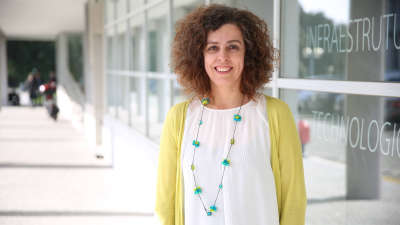O poder emocional e curativo da música e da dança
Can we explain the power of music and dance to prevent and even treat illness? In Western societies, this question is of great concern to cognitive scientists, who investigate the impact of music on basic human faculties such as memory, emotions and corporeal abilities in persons affected by different types of diseases (Alzheimer?s, autism, etc.). Ethnomusicologists, who focus on the cultural diversity of musical expressions, may offer an important contribution to this emerging field by describing how the relation among music, dance, and health is conceived of in other cultural contexts and performance settings. Although the scientific literature reports a large variety of these descriptions, no attempts have been made so far to compare data across cultures and musical genres, and to link qualitative field observations with quantitative laboratory experiments. By establishing an interdisciplinary team of scholars working on the fields of ethnomusicology, movement analysis, and music computing, this project aims to fill this gap. The first objective is to develop an anthropological theory of the emotional and healing power of music. By comparing ethnographic accounts coming from various regions of the world, we will address the following central question: Can we find, in different musical and cultural contexts, similarities in the ways music is used for healing purposes? Our hypothesis maintains that if music is widely associated with healing practices in many societies from around the world, this could be due to its potential to elicit and control emotions, whether this happens through symbolic associations or through aesthetic meanings attributed to musical forms. The second objective is to develop an innovative methodological framework for exploring the relation among music, emotions and health regulation in a specific study-case, that of Maracatu de baque solto, a Carnival performance occurring in Pernambuco (Northeast Brazil). Previous field research conducted by the PI of the current project has led to the following hypothesis: in order to prevent spiritual and physical attacks that may result in illness and eventually death, Maracatu musicians and dancers struggle to achieve a high level of group cohesion locally known as consonância (consonance), a valorized human and aesthetic feature which is opposed to desmantelo (fracture, breaking up). While field-research in Brazil will explore the symbolic, religious and emotional meanings of Maracatu, laboratory experiments in Lisbon will be held in order to understand, at a more formal level, how "consonance" is achieved through music and dance. More precisely, by using motion-capture techniques and multi-track recordings, our goal is to analyze: (1) the rhythmical micro-variations related to expressive qualities such as groove or swing; (2) dancers movements and their relation to the musical patterns; and (3) the complex collective choreographies, involving up to two hundred dancers.



